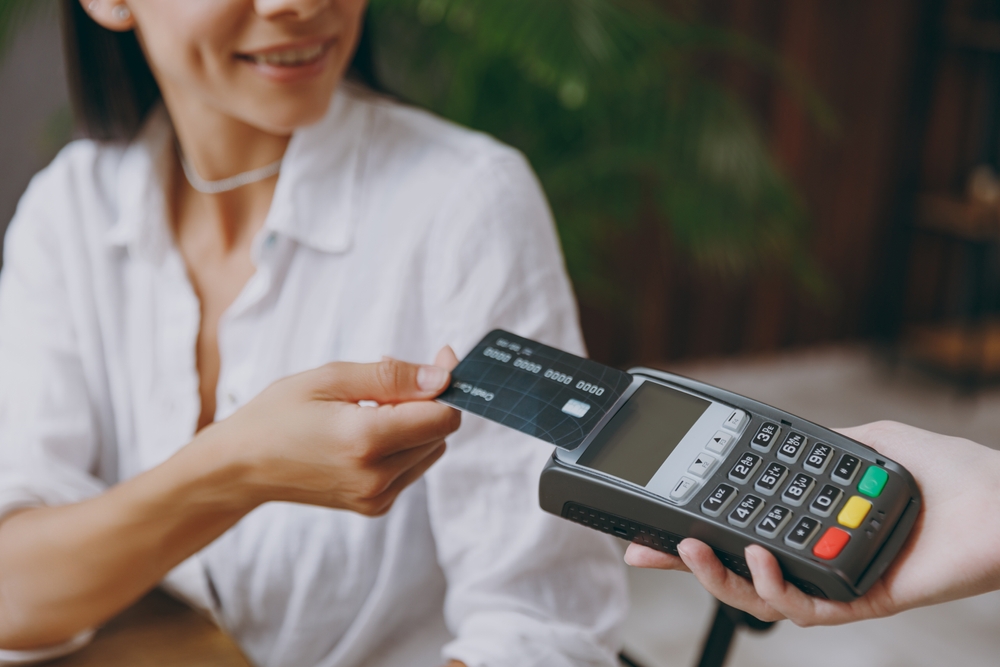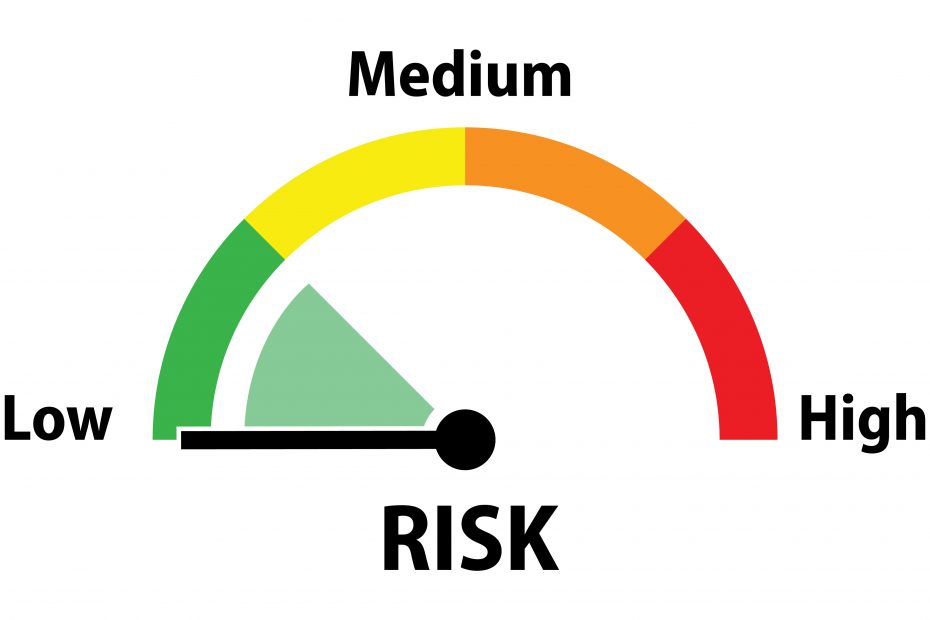When it comes to point of sale (POS) solutions, high risk merchant POS systems stand out due to their specialized features that cater to businesses in industries that are traditionally deemed as high-risk by financial institutions and payment processors. These systems are not only designed to process transactions but also to manage the additional layers of scrutiny and compliance that come with operating in a high-risk sector.
What Qualifies as a High-Risk Business?
Before we delve into the nuances of high-risk merchant POS systems, it’s essential to identify what makes a business high risk. The term ‘high risk’ can often be confusing and is sometimes inaccurately associated with illegitimate or unstable businesses, but in reality, it encompasses a broad range of legitimate industries that are subject to higher than average chargeback rates or have a greater potential for financial instability. Several factors can contribute to this classification:
- Industry type: Certain industries, such as adult entertainment, travel, and e-cigarettes, are inherently considered high-risk due to their business models.
- International sales: Companies that sell goods or services internationally are exposed to increased risk due to currency fluctuations and varying laws.
- High average ticket sales: If your business has a high average transaction amount, this can increase the risk of chargebacks.
- Bad credit history: A business or business owner with a poor credit history may be categorized as high risk.
- High chargeback ratios: Industries with historically high chargeback rates are automatically classified as high risk.

Features of High-Risk Merchant POS Systems
A high-risk merchant POS system must accommodate the unique challenges associated with operating in a high-risk industry. Some of the key features include:
- Robust Fraud Protection: High-risk POS systems offer advanced fraud detection and prevention tools to protect against unauthorized transactions and minimize chargebacks.
- Chargeback Prevention Mechanisms: Tools like alerts and prevention programs can help merchants respond quickly to disputes and reduce chargeback rates.
- Diverse Payment Method Support: These POS systems can accept various payment methods beyond credit and debit cards, including ACH payments, digital wallets, and even cryptocurrencies in some cases.
- Multi-Currency Transactions: Given that high-risk businesses often deal with international customers, high-risk POS systems can handle transactions in multiple currencies.
- Tailored Risk Management: High-risk merchants require specialized risk assessments, and their POS systems often include settings and controls that allow for a customized approach to managing transactions and customer interactions.
Navigating Compliance and Security
Businesses utilizing high-risk merchant POS systems must navigate a landscape dense with regulations and compliance standards. These systems are built to ensure adherence to industry standards. They also need to provide secure data encryption, tokenization, and secure customer authentication protocols. Compliance with these standards is not optional; it’s a necessity for protecting the business and its customers.
Partnering With the Right Merchant Services Provider
A high-risk merchant POS system is only as effective as the services provided by the merchant account provider. High-risk businesses need to partner with providers that understand the intricacies of their industry and can offer tailored solutions that address specific needs. This includes having knowledgeable support staff who are familiar with high-risk management, as well as offering competitive rates that take into account the elevated risk without imposing excessive fees.
High-Risk Merchant POS Systems: A Closer Examination
High-risk merchant POS systems are specialized Point of Sale (POS) solutions designed to cater to businesses that operate within industries considered to be of higher risk by financial institutions and merchant service providers. These systems are not only tailored for payment acceptance but also for managing the complex risk factors associated with such businesses.
The Unique Needs of High-Risk Merchants
Businesses classified as high-risk often face certain challenges that impact how they process payments and manage transactions. A high-risk merchant POS system is designed with these unique needs in mind. High-risk merchants are often targets for cybercriminals.
POS systems for these businesses come equipped with advanced security protocols, such as end-to-end encryption and tokenization, to protect sensitive data. These systems ensure that merchants remain compliant with stringent industry regulations. Merchants can set custom filters and thresholds to detect and prevent suspicious activities, a crucial feature given the higher rates of chargebacks and fraud in high-risk industries.
Integration and Compatibility
A high-risk merchant POS system must be versatile enough to integrate with various third-party applications and services that are critical to high-risk businesses. Such integrations can include:
- CRM Software: To manage customer relationships and track interactions which are crucial for reputation management in high-risk industries.
- Alternative Payment Solutions: High-risk merchants benefit from integrating with payment options such as cryptocurrency processors or eCheck services, expanding their customer base.
- Multi-Currency and Language Support: For businesses with an international customer base, POS systems must accommodate multiple languages and currencies.
Selecting a High-Risk Merchant POS System
When choosing a high-risk merchant POS system, businesses should consider the following elements to ensure that the system meets their particular requirements:
1- Customizability: The POS system should offer significant customization options to fit the specific workflows and operational needs of the business.
2- Support and Training: Providers should offer comprehensive support and training, recognizing that high-risk industries may have more complex processes and a greater need for responsive customer service.
3- Pricing Structure: The pricing should be transparent and structured in a way that takes into account the higher processing rates and additional fees that high-risk merchants often incur.
High-risk merchant POS systems are specialized platforms equipped to handle the intricacies of businesses that face greater scrutiny and higher risks in their daily operations. These systems offer robust security, compliance, and integration features that are essential for high-risk industries to manage their payment processing and business management needs effectively.

The Role of Merchant Services Providers in High-Risk Transactions
Merchant Services Providers (MSPs) are crucial in retail financial transactions, especially for high-risk businesses. High-risk businesses face greater challenges in the authorization, collection, and transfer of funds due to their heightened risk profile. Following is an in-depth look at what a merchant services provider facilitates for high-risk merchant transactions.
Authorization of Transactions
High-risk transactions are subjected to more rigorous vetting to verify legitimacy and ensure compliance with regulations. MSPs use sophisticated algorithms to analyze transaction patterns and spot potential fraud, a crucial feature for high-risk industries where fraudulent activities are more prevalent. The real-time authorization process provides immediate transaction approval feedback, essential for customer trust and smooth operations.
Collection of Funds from Issuing Banks
MSPs communicate effectively with issuing banks to ensure the collection of funds, navigating through different banking protocols and cybersecurity measures. They manage the timelines and ensure funds are collected promptly, including dealing with potential issues like international currency exchanges, which are common in high-risk sectors. They also reconcile transaction records, an often complex task for high-risk merchants with high transaction volumes and cross-border sales.
Transfer of Funds to the Merchant Minus Fees
High-risk MSPs implement specialized settlement processes to accommodate the unique needs of high-risk merchants, taking into account longer settlement periods due to enhanced verification steps. They provide transparent breakdowns of fees, which might be higher for high-risk merchants due to the increased due diligence and risk management efforts involved.
MSPs also play a critical role in managing cash flow by ensuring that funds are transferred to merchants in a timely manner despite the higher risks associated with their transactions.
Ensuring Security and Compliance
In addition to facilitating transactions, MSPs serving high-risk merchants have additional responsibilities:
- PCI DSS Compliance: They must maintain strict adherence to the Payment Card Industry Data Security Standards (PCI DSS), which ensures the security of card transactions.
- Regular Audits: MSPs conduct regular audits to ensure ongoing compliance with international security standards, a vital step for high-risk merchants who often deal with cross-border transactions.
- Data Protection: They provide robust encryption and tokenization services to safeguard sensitive customer information, mitigating the risk of data breaches that could be catastrophic for high-risk businesses.
Continuous Risk Management
MSPs for high-risk businesses don’t just process payments; they continuously monitor transactions for signs of unusual activity, swiftly responding to potential threats. They regularly assess the merchant’s business model and transaction patterns to adjust risk management strategies as needed.They also offer advisory services to educate high-risk merchants on best practices for minimizing chargebacks and fraudulent transactions.
Merchant services providers for high-risk businesses perform a complex balancing act.They ensure smooth transactions, thorough risk management, and strict compliance with security standards. For retailers in high-risk markets, these MSPs are more than just intermediaries; they are instrumental in securing the lifeline of the business—the flow of funds while vigilantly guarding against the increased risks inherent to their operations.
Essential Merchant Services for High-Risk Retail Operations
Understanding the merchant services landscape is vital for any retail business, but the stakes are higher for those operating within high-risk arenas. The appropriate selection of merchant services is not merely about facilitating transactions; it’s an exercise in safeguarding business sustainability and ensuring smooth operational integrity. In this section, we will break down the critical components of merchant services and the nuances that high-risk businesses must consider.
Payment Processor: The Transactional Workhorse
A payment processor acts as the intermediary between your store, the card networks, and the banks involved in each transaction. The processor carries out the critical task of transaction validation and completion, ensuring funds are accurately transferred from the customer’s account to the merchant’s account.
For high-risk merchants, choosing a payment processor with specific expertise in their field is paramount. Such processors are adept at navigating the complexities of stringent banking regulations and have advanced risk analysis tools to mitigate fraudulent activities.
Merchant Account: Your Business’s Financial Reservoir
A merchant account is a type of bank account that allows businesses to accept and process electronic payment card transactions. Unlike regular bank accounts, merchant accounts have unique provisions for dealing with chargebacks and payment disputes.
High-risk businesses typically face higher fees and more restrictive terms due to their elevated chargeback risks. It is crucial to select a merchant account provider that offers transparent terms and provides tailored support for the high-risk sector.
Payment Gateway: The Digital Pathway for Transactions
The payment gateway is an e-commerce service that authorizes credit card or direct payments processing for online and traditional brick and mortar stores. It’s the digital handshake between the payment processor and your online store’s checkout system.
For high-risk merchants, a payment gateway must offer robust security features, such as Secure Socket Layer (SSL) encryption, to protect sensitive data during transmission. Gateways should also be compliant with the latest payment security standards to mitigate the risk of data breaches.
Credit Card Processing Terminal: The Physical Interface for Payments
Terminals are the devices that customers use to make payments via credit or debit cards. They can range from traditional swipe machines to advanced POS systems that handle chip, contactless, and mobile payments.
High-risk businesses should seek out terminals that are equipped with the latest EMV chip technology for added security. Terminals capable of handling a variety of payment methods, including mobile wallets and contactless payments, can help reduce the incidence of fraud.
Strategic Decision Making: Starting with a Merchant Services Provider vs. POS Solution
The decision to start with a merchant services provider or a POS solution should be influenced by the specific needs of your high-risk business. Factors such as the volume of transactions, the level of risk management required, and the need for scalability should all play a part in this decision.
For businesses with complex needs—such as those that deal with multi-currency transactions, extensive online sales, or those that require high levels of customization—a dedicated merchant services provider may be the better initial route.
Alternatively, for retail-oriented businesses that prioritize in-person transactions, starting with an advanced POS system that integrates payment processing might be more beneficial. Look for POS systems that specialize in high-risk transactions and offer comprehensive support and training.
Merchant Services Essentials for High-Risk Stores
When managing a high-risk retail business, the complexities of financial transactions can be daunting. To streamline your store’s operations, understanding the necessary merchant services and their functionalities is key. Below is an examination of the critical components a high-risk merchant must consider when setting up their payment processing systems, ensuring secure transactions that align with their unique business requirements.
Decision-Making: Merchant Service Provider vs. POS Solution
Before diving into the specifics of each service, high-risk stores must decide on their foundational approach to processing payments. This decision could have substantial implications for the business’s operations and financial health.
Payment Processor
For high-risk businesses, the payment processor is not just a transaction facilitator but a vital partner in managing the elevated risks. Features to look for include:
- Customizable anti-fraud solutions with adjustable settings to tailor your transaction reviews according to your business patterns and industry norms.
- Real-time transaction analysis to offer on-the-spot fraud detection, crucial for high-risk sectors.
- High-risk merchant processors that specialize in managing accounts with a higher likelihood of chargebacks and fraud.
Merchant Account
The merchant account functions as a holding area for funds before they are settled into your business bank account. High-risk merchants must consider:
- Higher fees to compensate for additional risks associated with your industry.
- Longer settlement periods which can affect cash flow, a critical factor in maintaining operations.
- Providers that offer transparent reporting and customer support experienced in high-risk sectors.
Payment Gateway
As the digital communicator in card-not-present transactions, the payment gateway must offer:
- End-to-end encryption to protect data from the point of entry to the final destination.
- Compatibility with major eCommerce platforms, allowing for seamless integration with your online store.
- Support for multiple payment methods, including those that may be more prevalent in high-risk industries.
Authorize.Net is an example of a payment gateway provider that accommodates high-risk businesses and seamlessly integrates with EMB.
Credit Card Processing Terminal
The physical component in the chain of transaction processing, high-risk retailers need terminals that:
- Adhere to the highest security standards to mitigate risks posed by physical card transactions.
- Are rugged and durable if your high-risk business involves mobile operations or outdoor sales environments.
- Offer quick and secure processing to maintain customer confidence and streamline operations.
Selecting merchant services as a high-risk retailer goes beyond basic functionalities. You must scrutinize each service provider’s experience in high-risk industries, assess their commitment to customer support, and consider how their services integrate into your broader business systems.

Integration With eCommerce Platforms: Streamlining Online Sales for High-Risk Businesses
For high-risk merchants operating in the digital space, integration with eCommerce platforms is a crucial consideration. It can significantly improve efficiency, enhance customer experience, and provide robust data security measures.
Shopify and High-Risk Merchants
Shopify is a leading eCommerce platform that supports high-risk merchants by allowing integration with various high-risk payment gateways. Shopify’s built-in security features provide an added layer of protection for high-risk transactions. Integration with Shopify enables high-risk businesses to offer multiple payment methods, catering to a global customer base.
Square POS and High-Risk Businesses
Traditionally, Square has been reserved for low to medium-risk businesses. However, high-risk merchants can sometimes use Square by employing third-party high-risk payment gateways that integrate with the platform. The integration between Square POS and high-risk payment solutions can create a seamless in-store and online experience for customers, although it is contingent on the ability to link the chosen high-risk payment gateway with Square’s system.
Benefits and Limitations of Integration
When integrating high-risk merchant accounts with eCommerce platforms such as Shopify and payment solutions like Square POS, it’s important to recognize the benefits and limitations:
Benefits
- Centralized Management: Streamlines operations by managing both online and in-person sales through a single system.
- Enhanced Customer Data Analysis: Integrated platforms can provide valuable insights into customer behavior and sales trends, which can inform risk management strategies.
- Streamlined User Experience: A consistent shopping experience across different sales channels can increase customer satisfaction and loyalty.
Limitations
- Gateway Compatibility: Not all payment gateways will integrate seamlessly with platforms like Shopify or Square, especially for high-risk merchants, which may limit payment processing options.
- Cost: High-risk merchants may incur additional fees for using specialized payment gateways or for increased security measures.
- Compliance: Merchants must ensure that the integrated platform adheres to all regulatory requirements specific to their industry, which can vary widely for high-risk sectors.
While challenges exist, the benefits of integrating merchant services with leading eCommerce platforms can significantly outweigh the limitations for high-risk businesses. The key is to carefully select service providers that understand the nuances of high-risk operations and can offer the right blend of functionality, security, and compliance support.
Choosing the Right POS System for High-Risk Businesses
Selecting an appropriate Point of Sale (POS) system is a crucial decision for any retail business, but it becomes more complex and critical when dealing with high-risk merchant accounts. In this segment, we will dive into the considerations and features that are paramount when high-risk businesses seek to implement a POS system that caters not only to their transactional needs but also to their heightened security and compliance requirements.
Understanding High-Risk Merchant Accounts
A merchant is typically deemed high-risk due to factors such as industry type, transaction size, international sales, chargeback frequency, and financial history. These businesses, which include sectors like online gaming, adult entertainment, and telemarketing, often face difficulties in getting merchant services due to their increased likelihood of chargebacks and fraud.
Payment Processing Capabilities
High-risk POS systems must incorporate sophisticated algorithms capable of identifying and mitigating fraudulent activities. These systems need real-time processing and decision-making capabilities to flag and reject suspicious transactions promptly.
A critical feature for high-risk merchants is the ability to manage and respond to chargebacks efficiently. POS systems should offer reporting and analytics tools to track chargeback ratios and identify patterns that could indicate fraudulent activity or business practices in need of improvement.
Payment Gateway Integration
High-risk businesses often require a payment gateway that can handle a variety of payment types and accommodate the particular security measures necessary for high-risk transactions. Since many high-risk businesses operate globally, the payment gateway must support various currencies, allowing customers to pay in their local currency, which can help reduce the risk of chargebacks due to currency conversion issues. It’s imperative that the payment gateway uses strong encryption standards to protect sensitive data during transactions.
Security Features
- PCI Compliance: High-risk merchants must ensure their POS system is compliant with the Payment Card Industry Data Security Standard (PCI DSS). This compliance is not just about avoiding penalties but also about protecting customers’ data and maintaining trust.
- Data Tokenization: To prevent unauthorized access, high-risk POS systems should use tokenization for sensitive data, ensuring that even if a system breach occurs, the actual cardholder data is not exposed.
- Two-Factor Authentication (2FA): Adding an extra layer of security for system access can help prevent unauthorized usage, which is critical in high-risk markets.
Compliance and Regulatory Standards
- Regular Updates and Audits: High-risk POS systems must receive regular software updates to stay compliant with new regulations and to protect against emerging security threats.
- Industry-Specific Regulations: Some high-risk industries have additional regulatory requirements, and the POS system should be designed to help merchants comply with those as well. For instance, online pharmacies must comply with the Drug Enforcement Administration’s (DEA) regulations, which might affect prescription processing.
- Customizable Reporting: Because high-risk accounts are often subject to additional compliance reporting requirements, the POS system should offer customizable reports to accommodate these needs.
High-risk merchant POS systems are essential for businesses facing greater scrutiny and risk, providing robust security features, compliance with regulatory standards, and adaptable payment processing capabilities. These specialized POS solutions, along with knowledgeable merchant service providers, are crucial in managing the unique challenges high-risk merchants encounter, from higher chargeback rates to international sales. By selecting the appropriate high-risk POS system and partnering with the right service providers, these merchants can ensure secure, efficient operations and maintain the trust of their customers. Are you a high-risk merchant in need of a POS system that understands and mitigates the unique risks your business faces? Emerchantbroker.com specializes in providing robust POS solutions that cater specifically to high-risk industries. Choose EMB for a POS system that aligns with your specialized needs, helping to secure your transactions, manage risks effectively, and maintain compliance with industry standards. Contact Emerchantbroker today to find a trusted partner that stands ready to support the specific demands of your high-risk business operations.
A POS for high risk merchant account refers to a point of sale system that is compatible with merchant accounts considered high risk due to factors such as industry type, high chargeback rates, or irregular high-ticket sales. These systems usually have robust security features and fraud prevention mechanisms.
Yes, Square POS can be used with Shopify through integration that syncs your in-store and online sales. Although there may be certain limitations or requirements for setup, the integration allows for a unified system to manage both physical and online retail operations. You can go to the integrations section of EMB and find your Square-Shopify Integration.
Square POS can work with Shopify either directly or through third-party integration apps, like the one offered by EMB. It’s important to research and choose the most efficient method for your specific business needs, as direct integration may offer more streamlined service while an additional tool might provide extra features.
A high risk merchant account is categorized as such by banks and processing institutions based on perceived risk factors like higher likelihood of chargebacks, returns, or fraud. Industries such as travel, adult entertainment, and e-cigarettes often fall into this category.
High risk merchant account credit card transactions are processed similarly to regular merchant accounts but with additional scrutiny and security measures. Providers may implement stricter fraud detection and require higher fees to offset the risk.
When selecting a high risk merchant account payment gateway, it’s crucial to choose one that specializes in high risk industries, offering strong security, fraud prevention, and sometimes more lenient chargeback policies to accommodate the elevated risk level. Choose eMerchantbroker as it offers all the above!
A high risk POS may offer enhanced security features, specialized reporting for monitoring transactions prone to chargebacks, and support for payment methods that cater to industries considered high risk. Additionally, it may have integrations with merchant service providers that have expertise in high risk accounts.
Still have questions?
If you can’t find the answer you’re looking for, please reach out and chat with our team.
Get in touch

